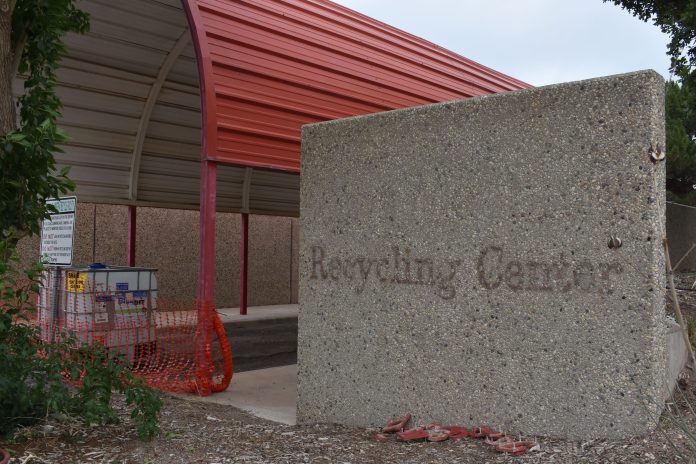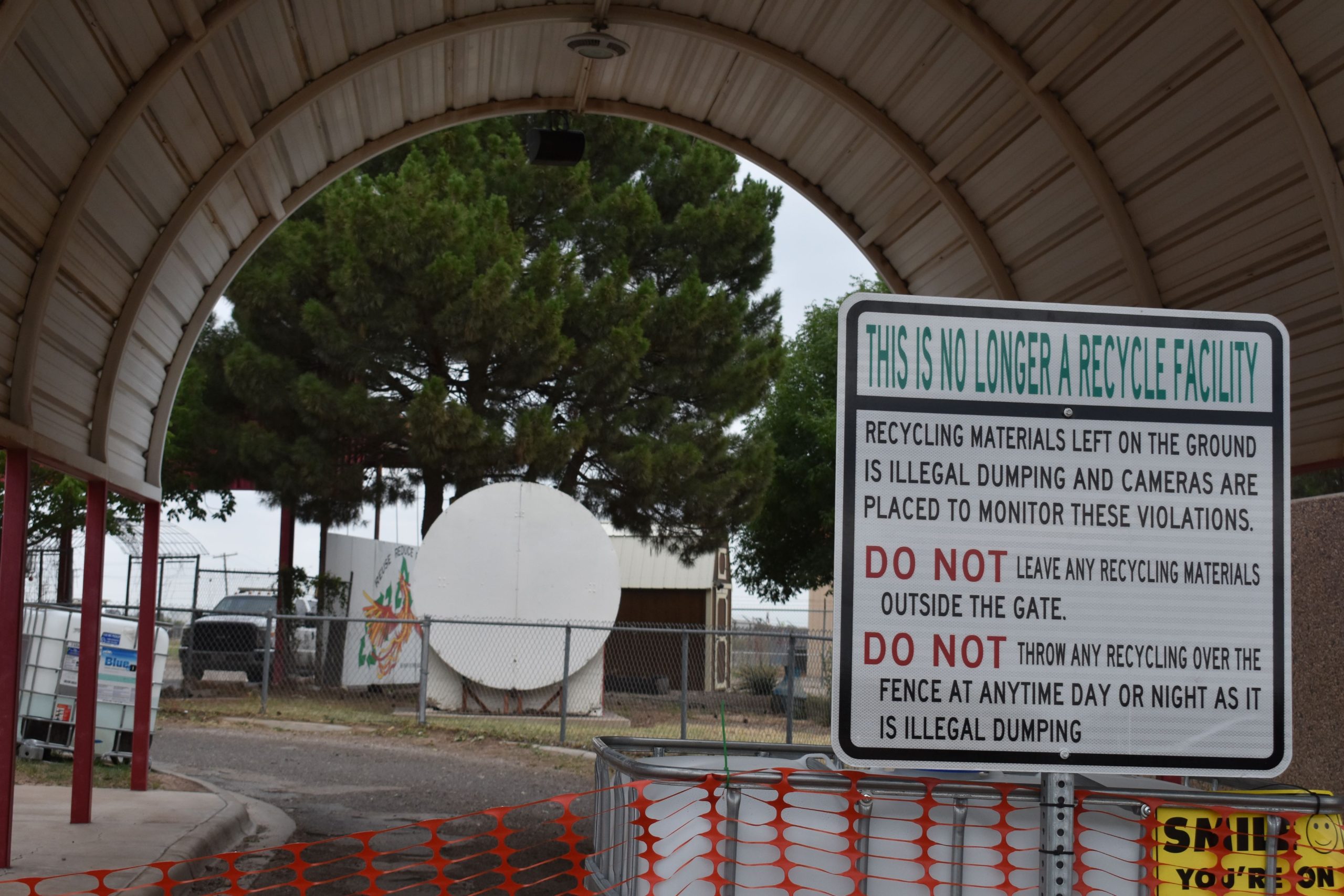
BRI Recycling CEO Kevin Butts said he was astonished by the Odessa City Council’s recent decision to reject a newly negotiated contract with his company, especially considering how hard they worked to keep the budget as low as possible.
“We operated the Time Machine for 26 years for the city and in my mind, we did an outstanding job and that’s why they just renewed the contract year after year after year and to have it blown up in the 11th hour on this new RFP (request for proposal) … it was really shocking that the mayor led the city council to this,” Butts said.
When he learned May 9 the City of Odessa was killing its recycling program, Butts said he was not only saddened for the residents of Odessa, but for the residents who live in Kermit, Wink, McCamey and other small communities who also brought their recycling materials to the Time Machine.
He’s not surprised, however, that the city is now backtracking.
“I can say that behind closed doors a lot of people were saying, ‘If you cut off total recycling, you gotta get ready for a lot of phone calls. You gotta be ready for it because it’s something that you guys have offered for over 30-plus years here. To say no more, you better be ready for it,’” Butts said.
If the city goes out to bid again, Butts said he’ll only bid under one condition.
“Only if the mayor’s not there. That’s true. I will not entertain coming back to the city the way we were thrown to the sidelines,” Butts said. “If the mayor is going to be the mayor the City of Odessa … I can’t come back to that. I just can’t. The citizens deserve better than that mayor.”
Earlier this month, the Odessa City Council rejected a recycling contract with BRI and opted not to sign a contract for SOS Waste Disposal to haul recyclables from the Time Machine to BRI in Midland, signaling an end to recycling in Odessa.
Out at the Time Machine recycling center on 42nd Street, city workers posted a sign stating it was no longer a recycling facility and anyone who left recycling materials there would be guilty of illegal dumping. City workers also pried letters spelling out “Recycling Center” from a Time Machine wall.

Now it appears as though the city council has had second thoughts.
On Tuesday night Interim City Manager Agapito Bernal announced the city is “actively working towards re-establishing the recycling program, but it has to find a viable path that works for the city.” He said the city is considering placing recycling bins for cardboard and plastics at the Time Machine.
For months, the council has discussed the fact Third World countries are no longer taking recyclables and much of Odessa’s materials are contaminated. They also noted a cost-benefit analysis showed the cost was too high due to overtime expenses and the need for a new multi-million dollar sorting facility and bailer. The council expressed their belief the $350,000 set aside to design the facility would be better spent elsewhere.
Back in February, Public Works Director Tom Kerr said the city disposes roughly 100,000 tons of garbage a year and about 700 tons of recyclables.
Solid Waste Superintendent Jesse Rodriguez told the council his staff was picking up 336 commercial recycling bins on Saturdays because of a staffing shortage and were being paid overtime to do so. BRI was then sorting through the materials mid-week and city staff was taking the remaining refuse to the landfill on Fridays. In other words, the city was picking up the same refuse twice.
The city council ultimately decided to remove those 336 bins and convert them into trash containers. City staff anticipated the conversion would net the city an extra $250,000.
The council also directed Kerr to work with BRI so there would be less contamination happening with the materials being dropped off by residents.
In March, Kerr told city council members he and BRI had discussed the possibility of putting up $45,000 in new fencing at the Time Machine, purchasing more 30-yard recycle containers ($40,000) and removing a divider wall to accommodate the containers ($40,000). All of the measures, he said, would help with contamination.
The council agreed to consider that proposal and council members directed Kerr to go out to bid in the hopes of finding another, less-expensive company to haul the materials from the Time Machine to BRI’s Midland facility.
On May 9, the council rejected BRI’s contract proposal and SOS Waste Disposal’s proposal to haul recyclables from the Time Machine to BRI in Midland.
Mayor Javier Joven said he wished recycling was cost effective, but it just isn’t and it’s only going to get more expensive.
“If people still want to recycle they’ll still be able to recycle. Just the City of Odessa, in my opinion, doesn’t need to be in this business any longer. For the reason is it just doesn’t make financial sense,” Joven said. “We can increase our savings by bowing out and allowing people to find their own methods of recycling.”
The mayor said the city needs to focus on fixing the roads and paying firefighters, police officers and other city staff.
“I want to be able to do research. I want to be able to provide it, but the thing is, it doesn’t make economic sense at this point,” Joven said that night.
During Tuesday night’s meeting, Joven insisted he was not “backtracking” and the city is exploring potential partnerships with another company which has its own facility.
On Wednesday, Joven said he heard Basin Disposal might be a viable option for the city more than 18 months ago and he hopes to sit down with them to discuss a possible partnership soon.
On Thursday, Butts said that back when city officials were talking about abandoning commercial recycling, he recommended they pause the program for six months to a year and then re-assess. He thought that together they could have come up with a better program.
As far as the Time Machine, the fixes he proposed would’ve cut contamination down to 5%, Butts said.
Butts also pointed out Basin Disposal didn’t even submit a bid. In fact, his company was the only one that did.
It was a two-year contract for $90,000 a year with the potential for three annual extensions.
“The city asked me for low budget, low budget, low budget for the last five months and we put together the lowest, lowest budget possible to keep that thing alive,” Butts said. “We were there ready to help.”



